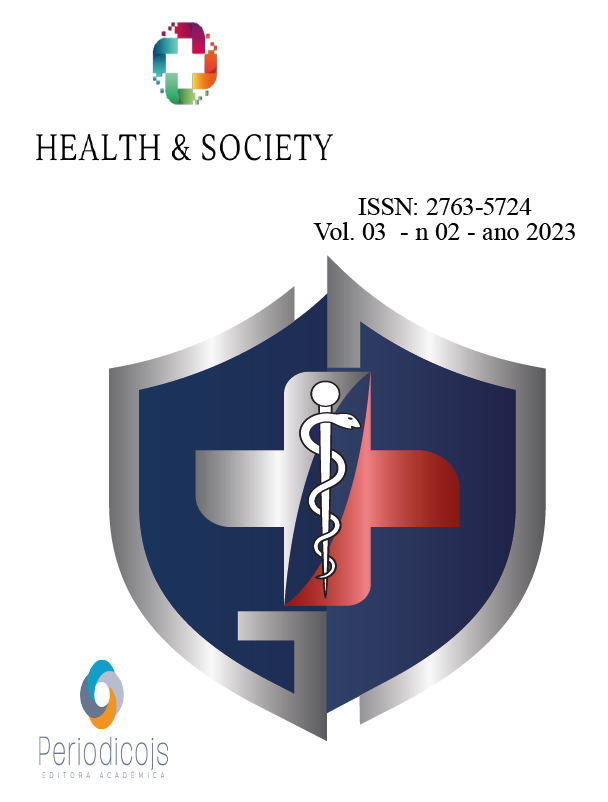Abstract
Objective: to approach the surgical process better known as frenectomy to solve Ankyloglossia, a condition that restricts the movement of the tongue. This change is characterized as congenital, consisting of fibrous connective tissue, which affects the tip of the tongue to the floor of the mouth. Case report: A 3-year-old female patient attended the Children’s Dental Clinic at the University Center of the State of Pará, presenting the Linguinha Test report proving the ankyloglossia. In the preoperative period, Ibuprofen 50mg / ml was prescribed, 18 drops 1 hour before the surgical procedure and 6/6 hours after surgery for 2 days. However, surgery was performed for the better development of the patient using high intensity iodine laser therapy ((2300mW-0: 00-continuous Surgery-DMC), successfully finishing the procedure. After 24h and 48h, the laser was applied low intensity (66 NM, 100 mW, 2J-DMC) to enhance the benefit of iodine laser. Conclusion: The present case indicates the use of the laser as a safe and effective technique for performing lingual frenectomy in a child patient.
References
Ngerncham, Sopapan et al. Lingual frenulum and effect on breastfeeding in Thai newborn infants. Paediatric and international child health, vol. 33, n. 2, p. 86-90, 2013.
Sarcinelli, Paula De Novaes; Moreira, Josino Costa. A exposição de crianças e adolescentes a agrotóxicos. In: É veneno ou é remédio: agrotóxicos, saúde e ambiente. Rio de Janeiro, Fiocruz, 2003. p. 43-58.
Martinelli RLC; Marchesan IQ; Rodrigues AC, Berretin-Felix G. Protocolo de avaliação do frênulo da língua em bebês. Rev CEFAC. 2012; vol. 14, n. 1: p. 138- 45.
Suter, Valérie GA; BORNSTEIN, Michael M. Ankyloglossia: facts and myths in diagnosis and treatment. Journal of periodontology, vol. 80, n. 8, p. 1204-1219, 2009.
Maggioni, M. et al. (2010). Láser en Odontología. Venezuela, Amolca.
Cavalcanti, T. et al. (2011). Conhecimento das propriedades físicas e da interação do laser com os tecidos biológicos na odontologia. Anais Brasileiros de Dermatologia, vol. 86, n. 5, pp. 955-960.
Ailioaie, L. et al. (2008). New introspections into laser interactions with living cells. Disponível em: <http://www.walt.nu/walt2008.html. Acesso: em 02/11/20.
Ngerncham, Sopapan et al. Lingual frenulum and effect on breastfeeding in Thai newborn infants. Paediatric and international child health, vol. 33, n. 2, p. 86-90, 2013.
Feres, MA. Componentes do aparelho estomatognático. In: Petrelli E (ed.). Ortodontia para fonoaudiologia. São Paulo: Lovise; 1994.
Beutnmuller G, CAMERA V. Reequilíbrio da musculatura orofacial. Rio de Janeiro: Enelivros; 1989..
BALDANI, Márcia Helena; LOPES, Célia Maria Da Lozzo and SCHEIDT, William Abib. Prevalência de alterações bucais em crianças atendidas nas clínicas de bebês públicas de Ponta Grossa - PR, Brasil. Pesqui. Odontol. Bras. [online]. 2001, vol.15, n.4, pp. 302-307. ISSN 1517-7491.
Kotlow, LA. Ankyloglossia (tongue-tie): a diagnostic and treatment quandary. Quintessence Int. 1999 Apr; 30 (4): p. 259-62.
Graziani, M. Cirurgia Buco Maxilo Facial - 6ª Ed.Rio de Janeiro: Guanabara Koogan, 1976.

This work is licensed under a Creative Commons Attribution 4.0 International License.
Copyright (c) 2023 Ana Carolina Reis De Paiva, Yasmin Farias Valente, Andréia de Fátima Souza Araújo, Suelly Maria Mendes Ribeiro





